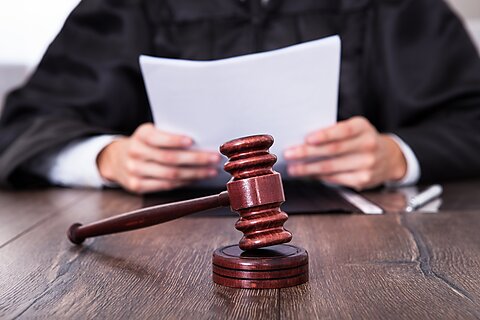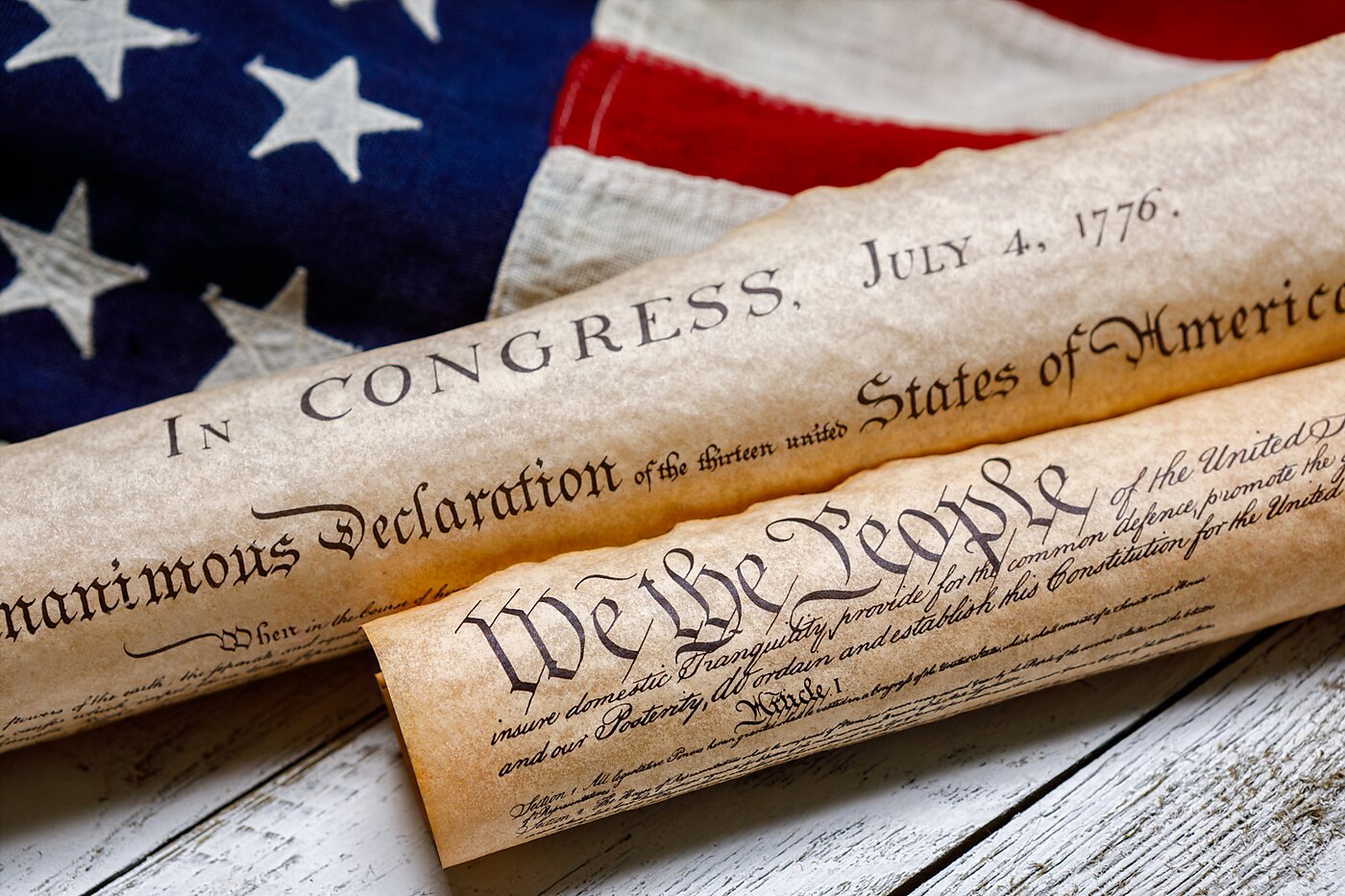What constitutional power does the federal government have to criminalize civil rights violations? This is the question raised by a recent Eleventh Circuit decision upholding the conviction of a racist who tried to run a black family off a Florida road.
When the violator of someone’s civil rights is a state government, the federal power question is easy to answer: the Fourteenth Amendment authorizes Congress to respond (and it has indeed enacted statutes criminalizing violations of civil rights). When the violator is a private business, the Supreme Court has long held that the Commerce Clause lets the federal government act.
But what if the rights violation is committed by a private actor outside of the context of commerce? Federal power is usually quite limited. All the way back in 1876, only a few years after the Fourteenth Amendment’s enactment, the Supreme Court drastically limited that provision’s possible scope.
In United States v. Cruikshank, the federal government tried to prosecute a band of white Louisianians who massacred over a hundred black militiamen. The government alleged that the massacre interfered with black citizens’ constitutional rights to assemble and to bear arms. The Supreme Court held that the federal government had no authority to prosecute the defendants because “[t]he only obligation resting upon the United States is to see that the States do not deny [constitutional rights]. This the [Fourteenth] amendment guarantees, but no more. The power of the national government is limited to the enforcement of this guaranty.”
Enter the Thirteenth Amendment. It straightforwardly empowers the federal government to root out one quintessential rights violation committed by private actors: slavery. The Supreme Court has also held that it authorizes Congress to act against “badges” and “incidents” of slavery. That is a narrow category—it includes compelled labor, limits on freedom of movement, violations of the rights to own property and enter into contracts, and denials of access to courts.
As early as 1883, in The Civil Rights Cases, the Court held that private racial discrimination does not count as a badge or incident of slavery. Justice Harlan did dissent, arguing that because the institution of slavery “rested wholly upon the inferiority, as a race, of those held in bondage, their freedom necessarily involved immunity from, and protection against, all discrimination against them, because of their race, in respect of such civil rights as belong to freemen of other races.” One of those rights included access to public accommodations. But Justice Harlan’s view lacked the support of the majority of his colleagues. (It is worth noting, though, that in 1968’s Jones v. Alfred H. Mayer Co., the Court held that the Thirteenth Amendment does let Congress outlaw racial discrimination in property sales and rentals.)
A recent decision raises new questions about the badges and incidents rule. The Eleventh Circuit issued an opinion on September 25 in United States v. Leahy. Drunk and belligerent, the white defendant Jordan Patrick Leahy repeatedly tried to run a black family’s car off a Florida road “while he yelled racial slurs and made a gun-shooting gesture.” “Then, when the police arrived, Leahy told them, ‘[T]hese guys [black people] are animals, you know what I’m saying? Y’all have to maintain these people, keep them in their—in their areas.’”
It is striking how nearly Mr. Leahy’s conduct fits within the badges and incidents doctrine. For nakedly racist reasons, he violently interfered with black citizens’ ability to freely move on a public road. It is perhaps unsurprising, then, that Mr. Leahy criticized that doctrine outright. While the Eleventh Circuit has no power to overturn it, Judge Rosenbaum wrote separately to explain why the Supreme Court should not do so. She wrote that Congress acts within its Thirteenth Amendment power as long as it “rationally determined the conduct it targeted to be a badge or incident of slavery.” Such a determination deserves deference from the courts.
How should libertarians view the Leahy decision? Favorably, albeit with caveats. As I mentioned, the Leahy case involved forceful interference with the liberty of movement based on racial grounds. Pre-Civil War laws required slaves to obtain passes from their masters before traveling off the plantations where they were held in bondage. Mr. Leahy implied that he committed his crime because the police were not maintaining black people in segregation. It was not a stretch for the Eleventh Circuit to treat Mr. Leahy as running afoul of the Thirteenth Amendment, as reasonably interpreted by Congress.
Outside of these fairly narrow circumstances, the Thirteenth Amendment’s reach should not extend far. It would be a colossal shift in favor of federal criminalization for, say, every crime motivated by racism—and even less, other forms of bigotry—to qualify as a badge or incident of slavery. It should be out of the question to interpret the Thirteenth Amendment as authorizing the federal government to prosecute every hate crime, much less to allow some future Congress to criminalize activity on the ground that it contributes to systematic inequities. Judge Rosenbaum’s call for deference needs to be nuanced in light of a basic requirement of federalism: states are ordinarily the level of government responsible for prosecuting local crimes.
What about cases where, as in Cruikshank, states prove unwilling or unable to stop private civil rights violations? There is a libertarian case that Cruikshank was decided wrongly. The Fourteenth Amendment reads that no state can “deny to any person within its jurisdiction the equal protection of the laws.” The State of Louisiana did not prosecute anyone for the massacre at issue in Cruikshank. If that omission did not deny the victims equal protection under the state laws, it is hard to imagine what would. Indeed, libertarian legal scholars Randy Barnett and Evan Bernick’s exhaustive account of the Fourteenth Amendment argues persuasively that Cruikshank missed the mark: the Fourteenth Amendment was originally meant to authorize federal action against rights violations toward which states cannot or will not respond.
That argument appears to be historically sound. It’s also logical. Libertarians believe in individual rights and federalism, in that order. It is preferable to leave the protection of civil rights to states as a matter of first resort. But that preference should not become a license for official indifference in the face of private rights violations. The federal government should have to demonstrate persuasively why only it can effectively uproot rights violations that would otherwise be local crimes. But there are times when it should be empowered to guarantee constitutional freedoms.


